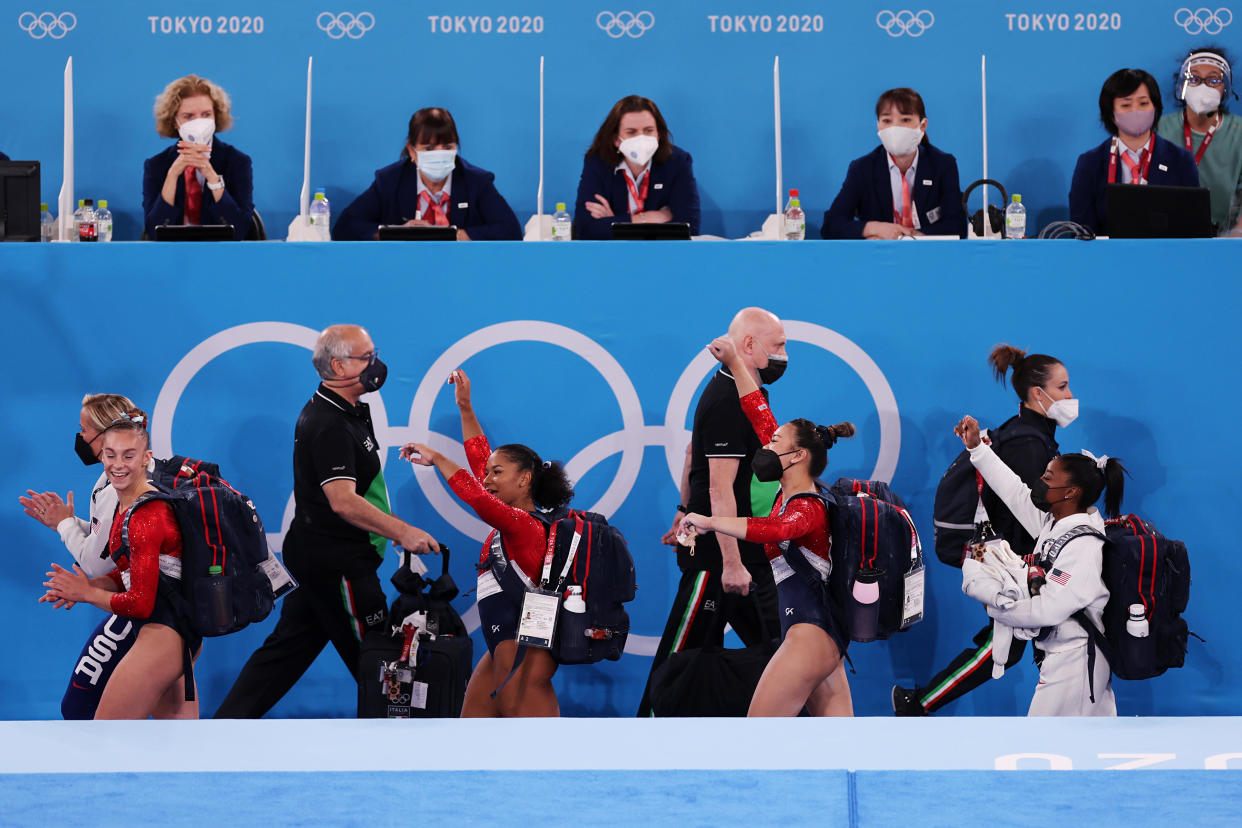How are Olympic judges chosen?

Athletes from 206 countries have congregated in Tokyo to compete in dozens of sports, many of them judged by panels of experts. With judges from around the world – some watching athletes from their own countries – how does the Olympics ensure impartiality in a subjectively judged sport?
The International Olympic Committee, known as the IOC, and the International Sports Federations choose judges. Each sport has its own international federation, which supervises sports at the global level.
FIFA – or Fédération Internationale de Football Association – is the well-known federation that overseas soccer, or football, worldwide. Gymnastics is overseen by the International Gymnastics Federation, or IGF.
These federations are not affiliated with any one country or government and are involved in the organizing of the Olympic Games. They establish the schedule for their sport, the requirements for qualifying, the number of competitors from each country and the number of international technical officials, such as referees, judges, timekeepers, inspectors or juries of appeal.
The federations nominate these officials for their sports and the IOC then approves or rejects their recommendations.

Some Olympic sports, like track, are not subjective. The fastest is the fastest. But for more subjective sports like gymnastics, multiple judges sit on panels and rules try and ensure their impartiality.
For Olympic gymnastics, two judges sit on the D Panel, which judges difficulty. Five judges sit on the E Panel, which judges execution. So, no one judge is judging a gymnast's performance across the board.
The highest and lowest execution scores are dropped and the three remaining scores are averaged, as a way to weed out any scores that may be high or low because of a judge's bias. A Reference panel corrects any problems with the execution scores.
For diving, judges are chosen by Fédération Internationale De Natation, or FINA, the international federation that oversees water sports. Similarly to gymnastics, seven judges submit their scores for a dive, and then the top two and bottom two scores are eliminated.
The three remaining scores are added up and multiplied by the degree of difficulty, or DD rating, which measures the difficulty for each type of dive.
Each sport has its own process of choosing Olympic judges.

All judges, coaches and athletes must also agree to the Olympic oath, which is read during the the opening ceremony, according to the IOC. The oath is about respecting the rules of the game and has been adapted overtime to include things like doping.
"Together we stand in solidarity and commit ourselves to sport without doping, without cheating, without any form of discrimination," the oath reads.
While there are measures in place to try an ensure impartiality, judges have been unfair before – and suffered the consequences. During the Rio Olympics in 2016, the International Boxing Association sent home an unspecified number of referees and judges.
The association said a review found that "less than a handful of the decisions were not at the level expected," according to CBS Sports.
The review came after Irish boxer Michael Conlan thought he defeated Russia's Vladimir Nikitin, but the officials' decision went 3-0 against him. Conlan accused the Amateur International Boxing Association of being bribed to make the decision.
During the 2000 Winter Games in Salt Lake City, judges were bribed to score figure skaters from Russia and France higher. Russian skating pair Elena Berezhnaya and Anton Sikharulidze won the gold medal – even though they slipped and the Canadian team was virtually flawless.
French judge Marie-Reine Le Gougne admitted the next day that she had been pressured to vote for the Russians.
Following the scandal, the International Skating Union changed its judging selection rules. Now, there is a large group of judges used and a smaller group of "scoring judges" is then anonymously chosen from that pool. Their scores are the ones then counted.
Tokyo breaks daily COVID-19 case record during Olympics
Matt Damon on co-star Camille Cottin's "Stillwater" performance
First African American woman on USA Water Polo team blazes trail for others

